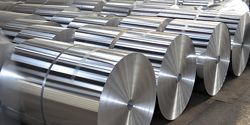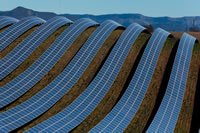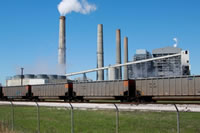Wastewater Energy Transfer (WET) Systems
With wastewater being prevalent in every city across North America, the market for WET systems exceeds $24 billion. WET systems provide meaningful carbon reduction for dense urban centres where other technologies like Geoexchange are not viable or practical.
Going Green With Obsolete Equipment - Tackling the Hidden Carbon of Manufacturing
Look around you. Chances are you're surrounded by manufactured products - from the chair you're sitting on, to the device you're reading this on. Each step along the manufacturing process of those products has some impact on the environment.
How Truck Fleets Are Reducing Their Carbon Emissions
In total, trucks emit 444 million metric tons of carbon dioxide in the U.S. annually. The vast quantity of air pollution generated by large vehicles contributes to various adverse environmental effects.
Carbon Offsetting - Invest in the Future
Amid other problems, one of the UK's major challenges in modern times is how to tackle the ever-present issue of climate change. As our population and economy has grown dramatically, so has the pressure on the environment as the demand for energy spikes.
Possible solutions for the UK to bring its greenhouse gas emissions down to zero
In a bid to become the cleanest country worldwide, the UK was announced that it is looking to cut its greenhouse gas emissions to zero by 2050.
One of the biggest criticisms against wind and solar energy has been quashed
Akshat Rathi for Quartz: Wind and solar energy helped avoid between 3,000 and 12,700 premature deaths in the US between 2007 and 2015.
Report: Fortune 500 Companies accelerating Renewable Energy Efforts
Clean energy actions saving companies $3.7 billion a year, cutting annual carbon pollution equivalent to 45 coal-fired power plants
The Solar Industry Has Paid Off Its Carbon Debts
Robinson Meyer for The Atlantic: Think of all the energy that goes into making a single solar panel. Quartz and copper must be mined. The raw materials must be converted into wafers, then encased in protective material. And after panels leave the factory, they must be shipped all over the world.
Now imagine these consequences spread over four decades—the environmental cost of the solar industry. Given all the research, development, and production time that goes into making any one panel, a skeptical solar-buyer might wonder: Has the solar industry on the whole really saved any energy at all? To that concern, a new analysis answers: Yes.
The solar industry probably paid off its long-term energy and climate “debts” in 2011, a study published this week in Nature Communications finds. Cont'd...
World's Largest Carbon-Capture Plant to Open Soon
Umair Irfan� for ClimateWire: � On schedule, on budget. � Its a tall order for any new technology, but for a commercial carbon capture and storage (CCS) system, it might be the start of a revolution.
The Petra Nova carbon capture system under construction at the W.A. Parish Generating Station, a coal-fired power plant southwest of Houston, is slated to go online before the end of the year. The billion-dollar facility will become the largest post-combustion carbon capture system installed on an existing power plant in the world.
Systems like Petra Nova that keep carbon dioxide from reaching the atmosphere may become a necessary means to mitigate climate change, and for some utilities, they could offer a lifeline to beleaguered fossil fuel plants. � Cont'd...
Scripps Vessel Proves Viability of Renewable Fuel on 14,400-Mile Voyage
Chris Jennewein for Times of San Diego: A Scripps Institution of Oceanography research vessel has demonstrated the viability of renewable fuel by traveling 14,400 nautical miles over a 16-month period on renewable diesel.
The R/V Robert Gordon Sproul used a hydrogenation-derived renewable fuel called NEXBTL Renewable Diesel developed by Neste Oil in Finland. The experiment began in September 2014 and ran through December 2015, during which time the vessel used a total of 52,500 gallons.
“Part of the Scripps mission is to protect the environment, and one of the most significant changes that we could make in our ship operations involved moving toward the use of cleaner, renewable fuels,” said Scripps Associate Director Bruce Appelgate. “As scientists, we know we need to develop sustainable means of powering our ships to address pollution concerns as well as to mitigate future increases in fossil fuel costs.”
Renewable biofuel is nearly carbon-neutral and produces cleaner emissions, thus decreasing greenhouse gas emissions and improving air quality relative to fuels derived from petroleum. Cont'd...
Records 1 to 10 of 10
Featured Product

Quality assurance in the manufacturing industry
Efficiency and precision with CSP software. In the highly competitive world of manufacturing, quality assurance is a critical factor for success. CSP offers you state-of-the-art software solutions specifically designed to ensure the highest standards of quality assurance in the manufacturing industry.



.jpg)






